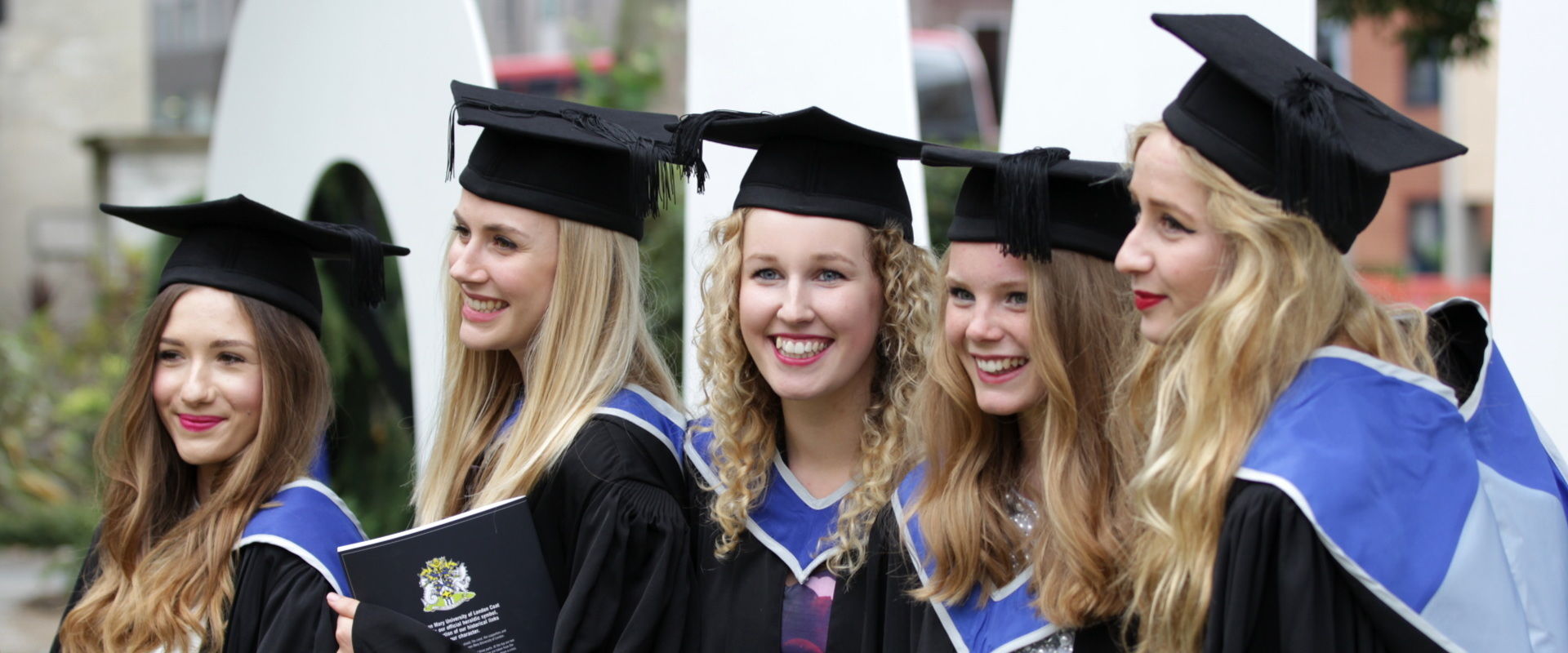MSc Biomedical Engineering (conversion programme)
Biomedical Engineering is a field of engineering that relies on highly inter- and multi-disciplinary approaches to research and development, in order to address biological and medical problems. Specialists in this area are trained to face scientific and technological challenges that significantly differ from those related to more traditional branches of engineering. Nevertheless, at the same time Biomedical Engineering makes use of more traditional engineering methodologies and techniques, which are adapted and further developed to meet specifications of biomedical applications.
This MSc programme in Biomedical Engineering is a 1 calendar year conversion programme that is part of a suite of programmes offered in Biomedical Engineering at Queen Mary University of London. This MSc conversion programme is aimed at students who already have an in depth knowledge of an area of Science (e.g. Maths, Physics, Biology or Chemistry), and who wish to convert to a career in Biomedical Engineering
This MSc programme aims to prepare specialists with advanced knowledge and transferable skills in the field of Biomedical Engineering, covering the following topics:
- Fundamentals of human physiology;
- Ethics and regulatory affairs in the biomedical field;
- Advanced aspects of tissue engineering, regenerative medicine and biomaterials;
- Advanced techniques to synthesize and/or characterise materials for biomedical engineering;
- Mechanics of tissues, cells and sub-cellular components;
- Biocompatibility of implantable materials and devices;
- Materials and techniques for nanotechnology and nanomedicine.
The programme has strong roots within the well-recognised expertise of the academics that deliver the lectures, who have international standing in cutting-edge research on Biomedical Engineering and Materials. This fact ensures that the programme is delivered with the highest standards in the field. The students also benefit from access to state-of-the-art facilities and instrumentation in the areas of Biomedical Engineering and Materials, while undertaking research projects in brand-new large laboratories that are the result of a recent multi-million investment from QMUL.
The programme is designed with a careful balance of diversified learning components, such that, on completion of their studies, the postgraduates acquire extensive knowledge and skills that make them able to undertake careers in a wide range of professional ambits within the biomedical field, including health care services, industry and scientific research.
Intakes
- Sep
- Jan
Application Processing Time in Days: 30
Application Process
Minimum English Language Requirements
| English Level Description | IELTS (1.0 -9.0) | TOEFL IBT (0-120) | TOEFL CBT (0-300) | PTE (10-90) | |
|---|---|---|---|---|---|
| Expert | 9 | 120 | 297-300 | 86-90 | |
| Very Good | 8.5 | 115-119 | 280-293 | 83-86 | |
| Very Good | 8 | 110-114 | 270-280 | 79-83 | |
| Good | 7.5 | 102-109 | 253-267 | 73-79 | |
| Good | 7 | 94-101 | 240-253 | 65-73 | |
| Competent | 6.5 | 79-93 | 213-233 | 58-65 | |
| Competent | 6 | 60-78 | 170-210 | 50-58 | |
| Modest | 5.5 | 46-59 | 133-210 | 43-50 | |
| Modest | 5 | 35-45 | 107-133 | 36-43 | |
| Limited | 4 | 32-34 | 97-103 | 30-36 | |
| Extremely Limited | < 4 | < 31 | < 93 | < 30 |
Job Opportunity Potential
Careers support
The services we offer to support your career development include:
- one-to-one appointments to help you with your career direction, give feedback on job applications, offer insight into the job market and prepare you for interviews
- workshops to support your career development and job hunting
- employer events attracting recruiters and alumni from a rich range of sectors
- support for finding internships and parttime jobs
- specialist careers consultants to support PhD students through appointments, events and workshops.
Support for international students
- We offer a programme of support for international students throughout the year, which involves talks on how to find graduate work in the UK and an International Students Week featuring external speakers.
- Students can search for jobs across the world with our international jobs database, as well as browse our guides on getting work in particular markets.
- All students have access to a rich programme of employer events and career development workshops, running across the University year.
Support after graduation
Our careers support continues after you leave Queen Mary.
- All graduates have access to our Careers and Enterprise services for two years after graduation.
- You can have -
free one-to-one appointments in person, over the phone or via Skype
Attend our employer events
use our online psychometric testing and mock-interview software
access our jobs board – over 3,000 employers uploaded vacancies in 2018/19.
Queen Mary graduates have gone on to work in these organisations:
• Accenture • Allen & Overy • Arup • AstraZeneca • Baker McKenzie • Barts Health NHS Trust • European Central Bank • Fintech Innovation Lab • Google • HSBC • IBM • Institute of Cancer Research • Institute of Dentistry • J.P. Morgan • Jaguar Land Rover • Lloyds Banking Group • Natural History Museum • Penguin • PwC • Queen Mary • Save the Children • Shell • Stella McCartney • Thales • Thomson Reuters • World Economic Forum ...and many more!
Careers success
93% of our postgraduates are in work and/or study six months after graduation. 84% of those in work/study are in highly skilled work/study (most recent DLHE Survey of 16/17 leavers)*
Enterprise support
Many students and graduates across Queen Mary start or grow their own business or social venture each year. In 2018/19, Queen Mary gave out £45,000 in seed funding to help students start new, or grow existing businesse
PSW Opportunity
- 2 Years PSW is applicable after the course completing (Bachelors level or above).
Admission Requirement / Eligibility Criteria
Degree requirements
- A 2:1 or above at undergraduate level in a Science, Mathematics or related discipline .
India
We normally consider the following qualifications for entry to our postgraduate taught programmes: Bachelor Degree (minimum 3 years) from selected institutions.
- UK 1st class degree: 70% to 80%
- UK 2:1 degree: 60% to 70%
- UK 2:2 degree: 50% to 60%
Offer conditions will vary depending on the institution you are applying from. For some institutions/degrees we will ask for different grades to above, so this is only a guide.
- Course Type: Full Time
- Course Level: Masters/PG Degree
- Duration: 01 Year
-
Total Tuition Fee:
23950 GBP
Annual Cost of Living: 12006 GBP
Application Fee: N/A
Similar Programs
- Telecommunication and Wireless Systems MSc at Queen Mary University of London
- M.Sc Sustainable Energy Engineering at Queen Mary University of London
- Sustainable Energy Systems MSc at Queen Mary University of London
- MSc Mechanical Engineering at Queen Mary University of London
- M.Sc Machine Learning for Visual Data Analytics at Queen Mary University of London
- MSc in Internet of Things (Data) at Queen Mary University of London

